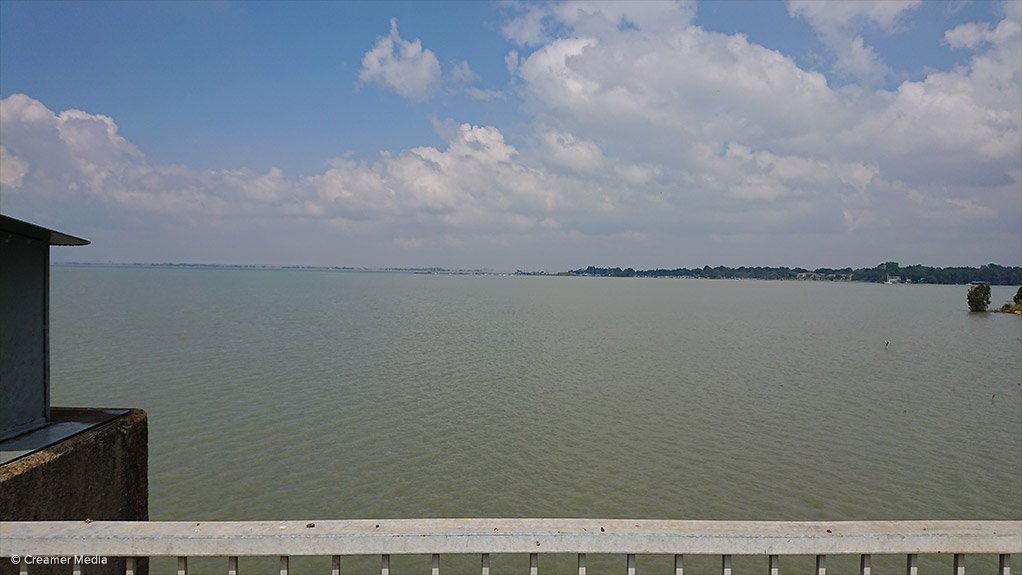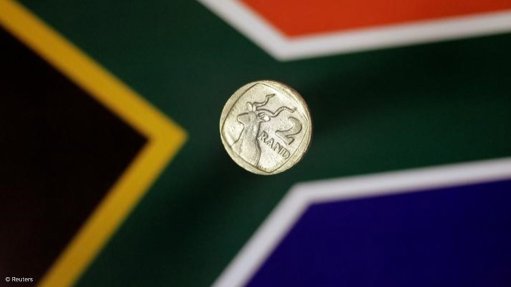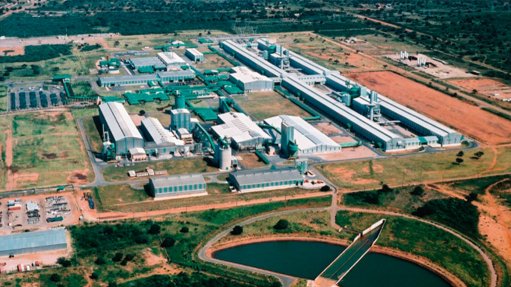Water Indaba delivers resolutions to resolve water challenges
Following the Water and Sanitation Indaba held last week, clear resolutions have emerged to reverse the significant decline seen in South Africa’s water sector in the past few years.
From underperforming municipal water service provision, aging infrastructure, pollution and water project delays to urbanisation, population growth, illegal connections and water theft as well as extensive water losses, inefficient use and high consumption, besides others, the water sector has struggled with many challenges.
“What is needed is course correction – a comprehensive plan that will expand access to water and sanitation services, improve the quality of water and sanitation infrastructure and bring stability and good governance to all the entities involved in South Africa’s water stewardship,” President Cyril Ramaphosa said during his keynote, addressing the more than 800 delegates from national, provincial and local government and the private sector.
He called for a clear vision, strategy and plan – with clear timelines – to ensure South Africa’s water security well into the future, while emphasising the need for greater cooperation between national and provincial government, the water resource management entities and the private sector to support the turnaround in water stewardship.
The Indaba aimed to obtain consensus on delivery and implementation models; increase investment through financing options and ensure the financial viability of the sector; enhance and strengthen technical and operational capacity and efficiency; build partnerships through building water sensitive and resilient communities; and fight criminality and corruption in the water and sanitation sector.
The ‘Water Security and Provision High Level Declaration and Resolutions’ document that emerged from the two-day indaba outlines key initiatives to reverse this deteriorating situation.
These span service delivery, investment, technical capacity, governance and corruption challenges to ensure the sustainability and inclusivity of water services across the country.
Under the theme of delivery and implementation models, resolutions include the Department of Water and Sanitation’s (DWS’s) establishment of the National Water Resource Infrastructure Agency by mid-2026 and completing the establishment of catchment management agencies (CMAs) by July 2025.
The DWS will also finalise the National Water Act amendments, including legislating the use-it-or-lose-it principle for water use licences, and submitting it to Parliament within six months, and finalise the Water Services Act amendments and table them to Parliament by May 2025, following which the department will establish an operating licensing system for water service providers (WSPs) by June 2026.
The declarations further indicate that all water services authorities (WSAs) are required to implement a utility model – a ring-fenced internal department, municipal entity, water board, special purpose vehicle or concession – for water and sanitation to ensure operational efficiency without losing municipal ownership, within three years, and separate their WSA and WSP functions and account for them separately within a year, with council resolutions taken within three months.
By April 2025, guidance to WSAs on the different options for external WSPs will be available by request and guidelines on the roles and functions of WSAs and WSPs will be issued by the DWS.
National Government, including the Presidency, National Treasury, the Department of Cooperative Governance and Traditional Affairs (Cogta) and the DWS, working with the South African Local Government Association, will review the intervention and support model for local government in terms of Section 154 and 139 of the Constitution and Section 63 of the Water Services Act, within two years.
Additionally, the DWS and the Association of Water and Sanitation Institutions of South Africa will develop a plan by the end of July 2025 for building water boards’ capacity and readiness to provide a retail WSP function to WSAs if requested, informed by a capacity assessment of the water boards.
In terms of resolutions related to increasing investment through financing options and ensuring the financial viability of the sector, the declarations outline that all government departments are required to pay correct invoices from municipalities within three months, with municipalities applying stringent credit control measures on government departments that do not pay.
Further, all WSAs are required to timeously pay their current invoices in full to the water boards, which, in turn, will pay their current invoices in full to DWS, with both of these resolutions starting immediately.
Alongside this, the DWS and water boards are preparing to implement the approved debt write-off mechanism with qualifying municipalities, while National Treasury is finalising the review of the funding model for local government.
The DWS will also implement its revised Raw Water Pricing Strategy by April 1, 2026, and establish, within three years, an independent economic water regulator to regulate water prices across the water value chain.
The declarations further dictate that, by May 2025, all WSAs and WSPs which do not yet have nonrevenue water programmes are to establish budgets for maintenance and for reducing leaks in water distribution systems; ensure that all reported leaks are fixed quickly; close illegal water connections; replace old leaking pipes, including asbestos pipes; improve the management of water systems; and strengthen metering, billing and revenue collection, including ensuring that billing systems are accurate.
All WSAs which have not yet ringfenced revenues from the sale of water for the water function are directed to take resolutions to their councils in this regard within six months, while the DWS will arrange provincial workshops with all WSAs in each province to develop a common understanding of what is meant by ringfencing.
Following the resolutions set out by the Water Indaba, and starting immediately, the declarations direct WSAs or WSPs to consider partnerships with the private sector, drawing on the support of the Water Partnerships Office (WPO), while the DWS and the WPO are working to develop Green and Blue Bond financing mechanisms with the private sector, for implementation by CMAs and WSAs.
Further plans include the DWS, the water boards and WSAs increasing their collaboration with the Infrastructure Fund to put in place more blended finance water projects over the next three years.
The DWS and the water boards are also set to develop additional non-commercial water provision partnerships with industrial sectors, such as the Olifants Management Model project in Limpopo with mining houses.
By the 2026/27 financial year, the DWS aims to have developed mechanisms to leverage private sector finance using the Regional Bulk Infrastructure Grant and Water Services Infrastructure Grant.
The DWS and Cogta will also engage National Treasury to review water and sanitation conditional grants with a view to addressing the challenge of maintenance of water and sanitation infrastructure within six months.
Under resolutions related to enhancing and strengthening technical and operational capacity and efficiency, the document outlined that all WSAs which have not yet submitted corrective action plans (CAPs) to address their Blue, Green and No Drop report results are to submit them to the DWS by end of May 2025, with those that have not yet started implementation of the CAPs to do so by June 2025.
All WSAs have been directed to establish plans to reduce demand within a year, through a combination of communications campaigns and stakeholder engagements aimed at behaviour change, water restrictions and tariffs and technical interventions such as flow restrictors, pressure management and leak reduction.
To improve water reliability, WSAs are required to implement leak detection and repair programmes, which will include improving leak repair turnaround times; prioritising the leaks resulting in the highest losses; and costing and implementing a programme of pipe replacement so that infrastructure remains within its design life.
Where water demand exceeds supply, WSAs are to enforce water restrictions and step-tariffs or punitive tariffs for high-volume non-industrial users with immediate effect, and the WSAs and WSPs which do not yet have water conservation and demand management programmes are to have these in place by May 2025, while climate change and disaster response plans need to be established within a year.
As crime and corruption significantly weigh on the water sector, the declaration outlined several initiatives aimed at fighting criminality and protecting assets.
This includes the establishment, within the next six months, of a national water and sanitation anti-corruption forum by the DWS, in collaboration with Special Investigating Unit.
Further, all WSAs that do not have an infrastructure security strategy or plan to combat vandalism and theft of water and sanitation infrastructure are required to develop them within six months, while implementing community education and awareness programmes to raise the implications of theft and vandalism on water infrastructure.
WSAs are also requested to consider establishing water committees to protect water and sanitation infrastructure within a year.
For these resolutions to be achieved, there must be greater collaboration between government, civil society, the private sector, water experts and water research institutions to support the turn-around, and government plans to embark on a process of consultation with all stakeholders, including organisations of civil society and traditional leadership.
Government will take a ‘Whole of Society Approach’ to addressing water challenges – making the imperatives of water security and ensuring sustained provision to be “everybody’s business”, drawing on the lessons from the Presidential Working Group for eThekwini.
Article Enquiry
Email Article
Save Article
Feedback
To advertise email advertising@creamermedia.co.za or click here
Press Office
Announcements
What's On
Subscribe to improve your user experience...
Option 1 (equivalent of R125 a month):
Receive a weekly copy of Creamer Media's Engineering News & Mining Weekly magazine
(print copy for those in South Africa and e-magazine for those outside of South Africa)
Receive daily email newsletters
Access to full search results
Access archive of magazine back copies
Access to Projects in Progress
Access to ONE Research Report of your choice in PDF format
Option 2 (equivalent of R375 a month):
All benefits from Option 1
PLUS
Access to Creamer Media's Research Channel Africa for ALL Research Reports, in PDF format, on various industrial and mining sectors
including Electricity; Water; Energy Transition; Hydrogen; Roads, Rail and Ports; Coal; Gold; Platinum; Battery Metals; etc.
Already a subscriber?
Forgotten your password?
Receive weekly copy of Creamer Media's Engineering News & Mining Weekly magazine (print copy for those in South Africa and e-magazine for those outside of South Africa)
➕
Recieve daily email newsletters
➕
Access to full search results
➕
Access archive of magazine back copies
➕
Access to Projects in Progress
➕
Access to ONE Research Report of your choice in PDF format
RESEARCH CHANNEL AFRICA
R4500 (equivalent of R375 a month)
SUBSCRIBEAll benefits from Option 1
➕
Access to Creamer Media's Research Channel Africa for ALL Research Reports on various industrial and mining sectors, in PDF format, including on:
Electricity
➕
Water
➕
Energy Transition
➕
Hydrogen
➕
Roads, Rail and Ports
➕
Coal
➕
Gold
➕
Platinum
➕
Battery Metals
➕
etc.
Receive all benefits from Option 1 or Option 2 delivered to numerous people at your company
➕
Multiple User names and Passwords for simultaneous log-ins
➕
Intranet integration access to all in your organisation





















